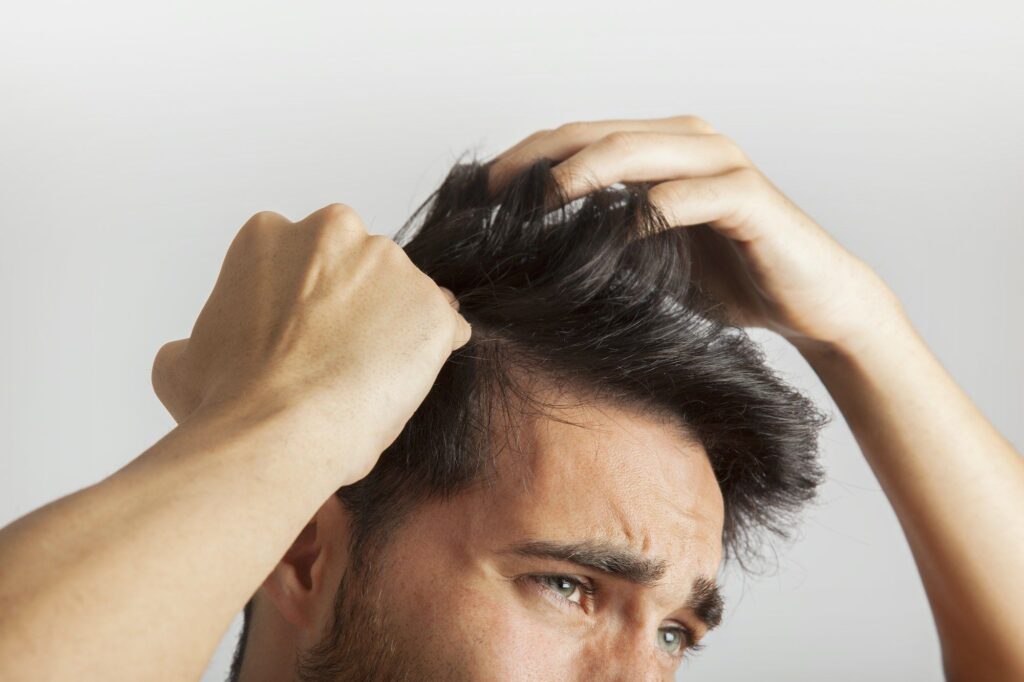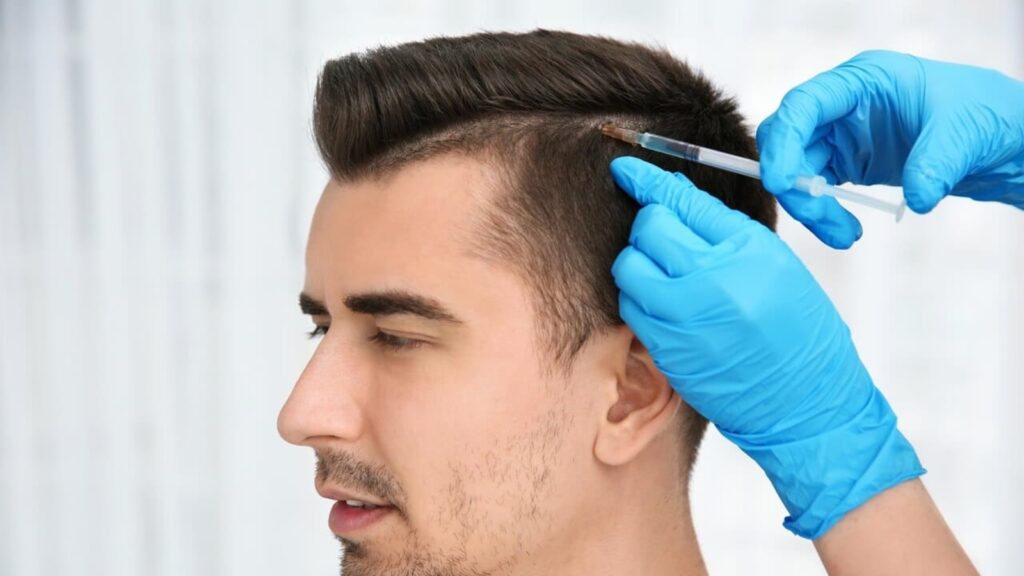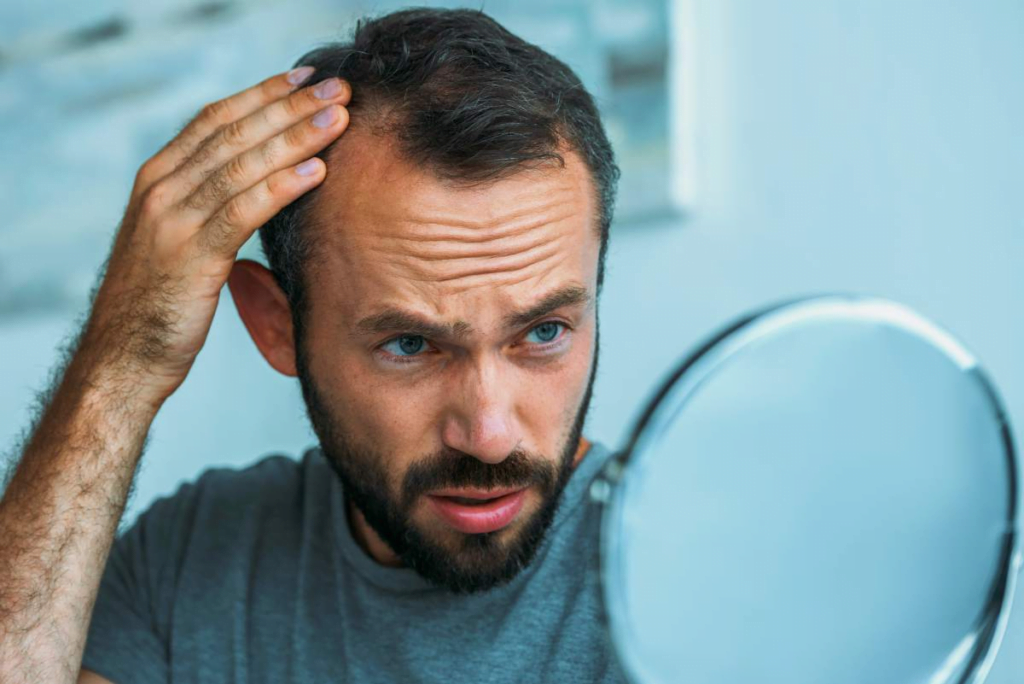
The healing process after hair transplantation is an important period that needs attention. There are some rules you need to know to make this process more comfortable and to achieve successful results after the process. After the hair transplant operation, it is very important to follow these rules to protect the health of the hair follicles and to achieve the results you want. You should especially pay extra attention to the first two weeks after hair transplantation.
İçindekiler
How should the process be after hair transplantation?
First of all, we should state that it is of utmost importance that you follow your doctor’s advice and act in consultation with your doctor during this process. Here are the things you should pay attention to during the healing process after hair transplantation:
1.Sensitivity of Hair Roots in the First 2 Weeks:
In the first week after hair transplantation, sensitivity may occur in the hair follicles. Therefore, avoid touching the scalp, applying pressure and scratching the scalp.
2.Blood Thinning Medicines
The use of blood thinners during the process may cause the bleeding to stop later. However, if you must use blood thinners, consult your doctor.
3.Hair Care Routine
What and how to use hair care products after the operation is very important during the first two weeks. In the first weeks, take care to use the lotions and shampoos recommended by your doctor.
4.Head Band
After hair transplantation, your doctor will recommend you to use a headband. It is very important to keep the headband clean and use the headband without damaging the transplanted hair. Also avoid sleeping with the headband. If you sleep with a headband, the grafts may be damaged.
5.Smoking and Alcohol
We recommend that you do not smoke and avoid alcoholic beverages for 7 days after the operation. Because using these substances may delay or negatively affect the healing process.
6.Hat Use
Although the hat provides protection against external factors, you should avoid wearing a hat for the first 5 days after the operation. If you will use a hat after the first 5 days, be careful not to damage the transplanted hair.
7.Rest
Resting after hair transplant operation is an issue you should pay attention to. After the operation, take care to spend the first day and the first night comfortably, if possible, ask for a week off from work.
8.Sunlight protection
Avoid direct sun exposure for the first 14 days. Do not neglect to use a hat, but do not neglect to be sensitive to your hair while using a hat.
9.Hair Contact
You should take care to keep your hands away from your hair after the operation. The roots in the healing process are open to infection. Therefore, trying to control them with hands can increase the risk of infection and damage the hair follicles.
10.Nutrition After Hair Transplantation
Post-operative nutrition is essential to support your healing process and for the health of hair follicles. Here are nutrition recommendations after hair transplantation:
Adequate Protein Intake:
Protein is important to facilitate hair growth and health. Consuming high protein foods such as eggs, chicken, fish, red meat, dairy products, legumes and tofu will be beneficial for your hair health.
Iron and Zinc:
Iron and zinc are very important vitamins for hair growth. Take care to consume foods containing iron and zinc such as red meat, chicken, fish, nuts, legumes and cereals.
Biotin (Vitamin H) Intake:
Biotin is an important vitamin that supports skin and nail health, especially hair. Eggs, almonds, hazelnuts, peanuts, broccoli and spinach are foods rich in biotin.
Vitamin C:
Including foods containing vitamin C such as oranges, tangerines, strawberries, broccoli and peppers in your diet can be beneficial for your hair in this process.
Omega-3 Fatty Acids:
Consuming foods containing omega-3 fatty acids is the most important condition of nutrition in this process. Consume foods rich in omega-3 fatty acids such as salmon, flaxseed, walnuts and chia seeds.
Water Consumption:
Water is necessary not only for our hair but also for our whole body health. Abundant water consumption has a positive effect on hair growth.
Avoid Ready Food and Sugar:
Foods containing trans fats such as sugary foods, prepared foods and fast food can increase inflammation and negatively affect hair health. Take care not to consume these foods.
Fruits and Vegetables:
It is beneficial to consume fruits and vegetables to support hair health. You should definitely include colourful fruits and vegetables rich in vitamin diversity and antioxidants in your diet.
Balanced Nutrition:
A balanced and varied diet comes first. Pay attention to your diet for your hair health. This both accelerates your healing process and is good for your mental health.
Follow Your Doctor’s Recommendations:
In the post-hair transplant period, doctor’s advice is very important not only in nutrition but also in everything related to your hair health. It is important to stay in touch with your doctor. Your doctor will guide you for the further days of the healing process. Each hair transplantation process will vary according to the person and your scalp structure. In hair transplant hospitals and clinics, a detailed information service is provided for your nutrition and other needs. You can get support from successful clinics.
For more information about our services, visit our clinic’s website at www.hairtrans.com. Additionally, you can learn more about Dr. MFO, the highly experienced surgeon leading our team, by visiting his website at www.dr-mfo.com/tr.


